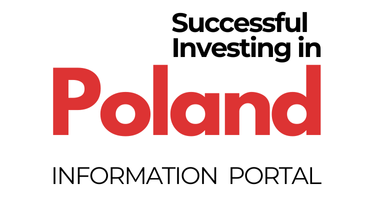November 2025 brought important tax rulings for entrepreneurs in Poland, a draft of changes in VAT reporting, new ESG-related regulatory obligations, as well as positive macroeconomic signals and dynamic investments in the logistics and space technology sectors. Below we present an overview of the key information that may have a direct impact on current business decisions and long-term strategies of companies operating in Poland.
In this article, we present the most important events of the past month that shape the conditions for doing business in Poland.
A branch of a foreign company with the same NIP as the parent company – confirmation in the KIS interpretation
The interpretation issued by the Director of the National Tax Information Office (KIS) on 22 August 2025 and the earlier ruling of the Supreme Administrative Court of 8 May 2025 confirmed that a branch of a foreign entrepreneur operating in Poland may use the same NIP number as the parent company – also as a PIT remitter. This marks a departure from the practice of assigning two identification numbers to the same entity and represents a significant simplification of tax settlements, invoice circulation and handling in electronic systems, including KSeF. For foreign companies operating in Poland, this is an opportunity to streamline tax identification, reduce invoicing errors and lower the risk of disputes with tax authorities.
Read the article for more details: A branch of a foreign company with the same tax identification number (NIP) as the parent company – confirmation in the interpretation of the National Tax Information Office (KIS) in Poland.
Draft regulation: new invoice markings in JPK_VAT in connection with National e-Invoicing System (KSeF) in Poland
The Ministry of Finance has published a draft regulation adapting the structure of JPK_VAT to the mandatory KSeF, which provides, among other things, for the obligation to show the KSeF number on both the sales and purchase side, as well as the introduction of new markings OFF, BFK and DI. The changes are to apply from the settlement for February 2026, regardless of when a given taxpayer starts issuing invoices in KSeF. For entrepreneurs, this means the need to modify financial and accounting systems, document circulation procedures and implement control mechanisms for invoices issued during KSeF downtime or outside the system. Proper preparation now will help limit the risk of errors in JPK_VAT, requests for corrections and potential penalties.
Read the article for more details: Draft regulation: new invoice markings in JPK_VAT in connection with KSeF.
EUDR Regulation – new obligations for companies in Poland from 30 December 2025
The EUDR (EU Deforestation Regulation) introduces comprehensive due diligence obligations for companies placing on the EU market, among others, products based on timber, rubber, palm oil, cocoa, soy, coffee and cattle and their derivatives. As of 30 December 2025, large and medium-sized enterprises will have to ensure full traceability of the origin of raw materials (including geolocation of plantations), carry out deforestation risk assessments, implement corrective actions, submit statements in the EU IT system and report supply chain compliance. Failure to comply may result in severe financial penalties (up to 4% of EU turnover), confiscation of goods or bans on trading. For companies in the food, cosmetics, furniture, clothing, automotive and retail sectors this is not only a regulatory challenge, but also an element of building a credible ESG strategy and competitive advantage.
Read the article for more details: EUDR Regulation – new obligations for companies in Poland from 30 December 2025.
Polish SAR satellites and the PIAST constellation – strategic development of Polish space technologies
The launch of the SpaceX Transporter-15 mission with five Polish satellites on board, including the first Polish SAR radar satellite from ICEYE, three PIAST nanosatellites based on the HyperSat platform and the PW6U satellite from SatRev, is a breakthrough in the development of national space technologies. Poland not only delivers modern orbital units, but also has a locally built ground segment and competencies to handle missions end-to-end – from construction, through integration, to data processing. For entrepreneurs, this translates into a rapidly growing market for services based on satellite data – from infrastructure and environmental monitoring, through precision agriculture and logistics, to advanced data analytics and AI solutions – and real opportunities to enter the supply chains of the space industry.
Read the article for more details: Polish SAR satellites and the PIAST constellation – strategic development of Polish space technologies.
Logistics investments in Poland – InPost expands its centres near Krakow for over PLN 100 million
InPost continues the intensive expansion of its logistics infrastructure, investing over PLN 100 million in the development of two key centres in Mnikowo (“Kraków 2”) and Zakrzów (“Kraków 3”). The projects include a significant increase in warehouse space, implementation of automated parcel sorters and modern handling systems, which is intended to shorten loading times, reduce the number of errors and increase the throughput of operations. The investment benefits from Polish Investment Zone preferences, enabling the company to achieve significant tax savings. This is an example of how the combination of innovation, automation and investment incentives strengthens Poland’s position as a regional logistics hub and creates new jobs in the modern services sector.
Read the article for more details: Logistics investments in Poland – InPost expands its centres near Krakow for over PLN 100 million.
Poland’s rating according to S&P – stable assessment and growing economic potential
On 7 November 2025, the S&P agency confirmed Poland’s rating at A-/A-2 for foreign currency liabilities and A/A-1 for debt in PLN, maintaining a stable outlook. In the agency’s view, the country stands out with a relatively high rate of economic growth (approx. 3% on average in 2025–2028), a large and diversified economy, a strong domestic market and the growing role of the services and modern technologies sectors. At the same time, fiscal challenges were highlighted – an increase in public debt and a high deficit related, among others, to army modernisation and investments co-financed by EU funds. For foreign investors, a stable rating means lower country risk, better access to financing and confirmation that Poland remains one of the most attractive and predictable markets in the region.
Read the article for more details: Poland’s rating according to S&P – stable assessment and growing economic potential as an opportunity for foreign investors.
November 2025 brought both significant simplifications in the area of taxpayer identification, an announcement of more detailed VAT reporting, new ESG-driven regulatory requirements, as well as a clear strengthening of Poland’s position in the logistics and space sectors and in the eyes of global investors. At getsix® we support companies by providing a full range of services in the areas of accounting, taxes, HR and payroll, as well as company formation, administrative support, reporting and international advisory services both in Poland and abroad.





